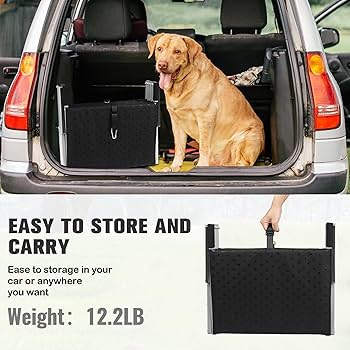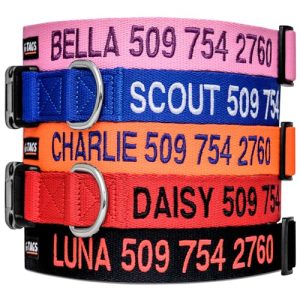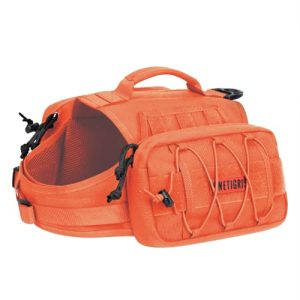Transporting your dog in a car can feel tricky if you’re not sure how to keep them safe and comfortable. You want your furry friend to enjoy the ride without stress or danger.
But how do you make sure your dog stays secure, calm, and happy on the road? This guide will walk you through simple, effective ways to transport your dog in a car. By the end, you’ll feel confident and ready for every trip, big or small.
Keep reading to discover the best tips for a smooth, safe journey with your dog.
Choosing The Right Restraint
Transporting a dog safely in a car is very important. The right restraint keeps your dog secure. It also helps protect everyone inside the vehicle.
There are several ways to keep your dog safe. You can use harnesses, crates, or barriers. Each option fits different needs and dog sizes.
Harnesses And Seat Belts
Harnesses attach to your car’s seat belt system. They keep your dog in one spot. This lowers the chance of injury in a crash. Choose a harness that fits your dog well.
- Measure your dog’s chest and neck before buying
- Look for padded harnesses for comfort
- Check that the harness has strong clips and straps
- Make sure the harness connects easily to your car’s seat belt
Crates And Carriers
Crates are enclosed spaces that hold your dog safely. They stop your dog from moving around the car. Carriers are best for small dogs. Use a crate that fits your dog’s size.
| Crate Type | Best for Dog Size | Key Feature |
| Plastic Carrier | Small | Lightweight and portable |
| Wire Crate | Medium to Large | Good ventilation and visibility |
| Soft-Sided Crate | Small to Medium | Easy to carry and store |
Barriers And Gates
Barriers keep your dog in the back seat or cargo area. They stop your dog from distracting the driver. Barriers are great for bigger dogs that don’t like crates.
- Easy to install and remove
- Allows your dog to move freely in one area
- Prevents dogs from jumping into front seats
- Can be metal or mesh for visibility
Preparing Your Dog For The Trip
Traveling with your dog can be fun and safe if you prepare well. Getting your dog ready helps reduce stress on the road.
Start preparing your dog before the trip. This makes the travel experience better for both of you.
Acclimating To The Car
Let your dog get used to the car before the trip. Take short rides to help them feel comfortable.
Bring your dog’s favorite toy or blanket. This gives them a sense of safety in the car.
- Start with short trips around the block
- Use treats to reward calm behavior
- Gradually increase ride length
- Keep the car cool and quiet
Exercise Before Travel
Give your dog some exercise before the trip. A tired dog is usually calmer during the ride.
Take your dog for a walk or play fetch. This helps release extra energy before getting in the car.
- Walk your dog for 20 to 30 minutes
- Play games to tire them out
- Exercise helps reduce travel anxiety
- A calm dog travels better
Feeding And Hydration Tips
Feed your dog a small meal a few hours before travel. Avoid feeding right before the trip to prevent nausea.
Keep fresh water available during the trip. Offer water regularly but in small amounts.
- Feed 3 to 4 hours before leaving
- Do not feed during the ride
- Provide water breaks every hour
- Use a spill-proof water bowl
Setting Up The Vehicle
Transporting your dog safely in a car starts with preparing the vehicle. Proper setup helps your dog stay calm and secure during the trip.
Focus on the right crate or harness placement, keeping the temperature comfortable, and reducing distractions for a smooth ride.
Positioning The Crate Or Harness
Place the crate or use a harness in a safe spot inside the car. The area should be stable and prevent your dog from slipping or falling.
- Secure the crate with seat belts or anchors to stop it from moving.
- Put the crate on the back seat or in the cargo area for safety.
- If using a harness, attach it to the car’s seat belt system.
- Avoid the front seat to protect your dog from airbags.
Controlling Temperature
Keep the car temperature steady and comfortable for your dog. Dogs can overheat or get too cold quickly.
| Temperature Range | Comfort Level |
| 65-75°F (18-24°C) | Ideal for most dogs |
| Below 60°F (15°C) | May be too cold, use blankets |
| Above 80°F (27°C) | Risk of overheating, use AC |
Minimizing Distractions
Limit sounds and sights that can distract or scare your dog. This helps keep your dog calm and focused during the trip.
- Close windows enough to reduce noise but allow fresh air.
- Avoid playing loud music or using strong scents in the car.
- Keep the dog’s favorite toys or blankets nearby for comfort.
- Ask passengers to avoid sudden movements or loud talking.
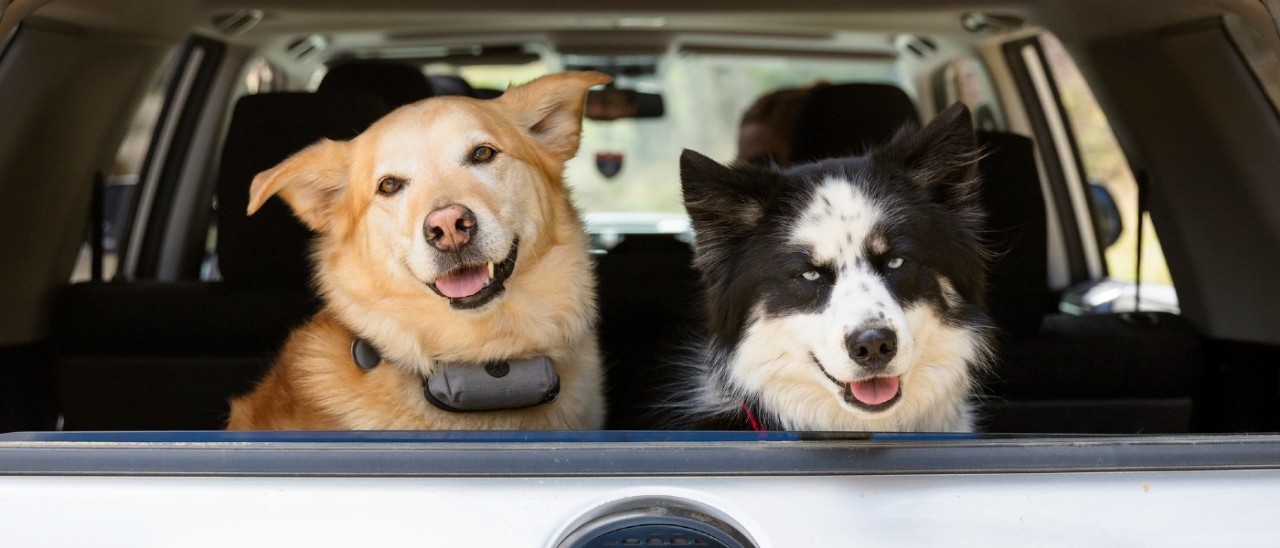
Credit: www.racv.com.au
Driving Safely With Your Dog
Driving with your dog needs special care to keep both safe. A calm trip helps your dog feel secure.
Following safe driving tips can prevent accidents and reduce stress for you and your pet.
Maintaining Steady Speeds
Keep your speed steady to avoid sudden stops or sharp turns. This helps your dog stay balanced in the car.
Slow down in heavy traffic or bad weather. Smooth driving reduces your dog’s anxiety and risk of injury.
Taking Breaks
Plan regular stops during long drives. This lets your dog stretch, drink water, and relieve itself.
- Stop every 2 to 3 hours
- Use a leash when outside the car
- Offer fresh water at each break
- Check your dog’s comfort and health
Handling Emergencies
Prepare for emergencies by keeping important items ready. Knowing what to do can save your dog’s life.
| Item | Purpose |
| First Aid Kit | Treat minor injuries |
| Leash and Harness | Control your dog safely |
| Water and Bowl | Keep your dog hydrated |
| Contact Info | Find a vet quickly |
Legal And Health Considerations
Transporting your dog safely in a car keeps both you and your pet protected. Laws and health tips guide how to travel properly.
Knowing rules and health needs helps prevent accidents and injuries during trips with your dog.
State Laws On Pet Restraints
Many states require dogs to be restrained in vehicles. This reduces distraction and injury risk in crashes.
- Some states require a harness or seat belt for dogs.
- Others may allow crates or carriers as safe options.
- Penalties vary from fines to points on your license.
- Check local laws before traveling to new areas.
Traveling With Puppies And Seniors
Puppies and senior dogs need extra care during car trips. They tire easily and may get stressed.
| Age Group | Key Travel Tips |
| Puppies | Frequent breaks, soft bedding, and hydration |
| Senior Dogs | Comfortable support, slow movements, and warmth |
Motion Sickness Remedies
Many dogs feel sick in cars. These remedies help ease motion sickness.
- Feed a light meal a few hours before travel.
- Use natural remedies like ginger or calming sprays.
- Keep the car cool and well-ventilated.
- Talk softly to comfort your dog during the trip.
- Consult a vet for medication if sickness is severe.

Credit: pfoten.net
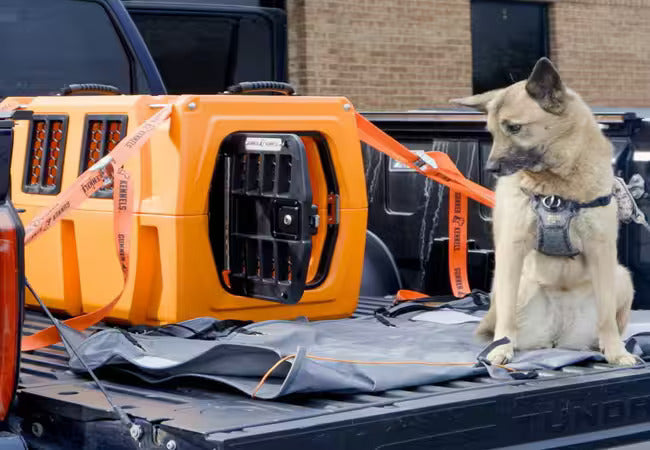
Credit: askavet.com
Frequently Asked Questions
How Do I Keep My Dog Safe In The Car?
Use a dog seat belt, crate, or car harness. Secure your dog to prevent injuries. Avoid letting them roam freely inside the vehicle.
Can Dogs Get Car Sick During Travel?
Yes, dogs can get car sick. Keep windows slightly open for fresh air. Take breaks on long trips to help your dog relax.
What Is The Best Crate For Car Travel?
Choose a sturdy, well-ventilated crate. It should fit your dog comfortably and secure firmly in the car. Soft-sided crates are good for calm dogs.
How Often Should I Stop For My Dog On Road Trips?
Stop every 2-3 hours for bathroom breaks and exercise. Allow your dog to stretch and hydrate. This reduces stress and discomfort during travel.
Conclusion
Transporting a dog in a car requires care and planning. Keep your dog safe with proper restraints or carriers. Take breaks on long trips for water and exercise. Comfort helps reduce stress and keeps your dog calm. Always check local laws about pet travel.
A smooth ride makes the journey better for both of you. Simple steps make traveling with your dog easier and safer. Enjoy the trip and keep your furry friend happy.

Emily Barker is the founder of ChillDogLife.com, a space dedicated to helping pup parents discover the best dog products, lifestyle tips, and cozy ideas for happier homes.
A lifelong dog lover, Emily combines her passion for pets with a knack for research to share trusted recommendations on everything from toys and furniture to health and everyday care.
Her goal is simple: to make life easier, stylish, and more joyful for dogs and the people who love them.
